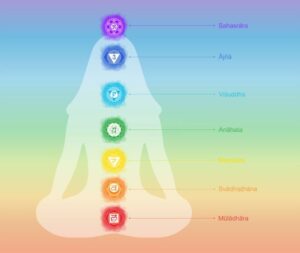Meditation Techniques for Good Mental Health
Meditation, a practice rooted in mindfulness and self-awareness, has emerged as a powerful tool for enhancing mental health. In this exploration, we delve into various meditation techniques, their tangible benefits, practical tips for beginners, and the evolving landscape of meditation in the digital age.
Definition of Meditation
Meditation, at its core, involves the intentional cultivation of a heightened state of awareness and focus. It is not about emptying the mind but rather about observing thoughts without judgment. This deliberate attention to the present moment distinguishes meditation from mere relaxation exercises, offering a profound way to connect with one’s inner self.
Importance of Mental Health
In today’s relentless pace of life, mental health has become paramount. Stress, anxiety, and burnout are pervasive, making it imperative to seek effective strategies to maintain psychological well-being. The acknowledgment of mental health as a vital component of overall wellness is reshaping societal attitudes, fostering a proactive approach to emotional and mental resilience.
Link Between Meditation and Mental Well-being
Scientific evidence consistently demonstrates the positive correlation between meditation and mental health. The practice has been associated with reduced stress levels, enhanced emotional regulation, and improved overall mental resilience. Neuroscientific studies showcase structural changes in the brain linked to emotional well-being, reinforcing the legitimacy of meditation as a holistic approach to mental health.
Popular Meditation Techniques
Mindfulness Meditation
Mindfulness meditation involves being fully present in the moment, observing thoughts, feelings, and sensations without attachment or judgment. It often starts with focusing on the breath to anchor attention. This technique cultivates a non-reactive awareness, empowering individuals to navigate life’s challenges with a centered and composed mindset. Regular practice fosters emotional intelligence and a deep understanding of one’s inner landscape.
Loving-Kindness Meditation
Also known as “Metta,” loving-kindness meditation centers on cultivating feelings of compassion and goodwill towards oneself and others. It fosters a positive mindset and emotional resilience. By intentionally generating feelings of love and kindness, individuals expand their capacity for empathy, reducing negative emotions. This practice has been linked to improved self-esteem and greater satisfaction in interpersonal relationships, emphasizing the interconnectedness of mental well-being and social bonds.
Transcendental Meditation
Transcendental Meditation (TM) is characterized by the silent repetition of a mantra, aiming to transcend ordinary thought and access a state of pure awareness. It is celebrated for its simplicity and effectiveness. TM provides a structured approach to meditation, offering individuals a specific mantra based on personal characteristics. The mantra serves as a focal point, guiding the mind towards a transcendent state. This technique is renowned for promoting relaxation, clarity, and a sense of inner peace.
Guided Imagery Meditation
Guided imagery meditation utilizes visualization to create a calming mental environment. Practitioners may imagine serene landscapes or follow guided scenarios for relaxation. This technique engages the power of the mind to influence the body’s physiological response. Visualization stimulates the imagination, triggering a cascade of positive effects, including reduced stress hormones and an increased sense of well-being. Guided imagery is accessible to beginners, providing a creative and enjoyable entry point into the world of meditation.
Benefits of Meditation for Mental Health
Stress Reduction
One of the primary benefits of meditation is its capacity to reduce stress. Techniques such as mindful breathing activate the body’s relaxation response, countering the detrimental effects of chronic stress. Mindful breathing, a cornerstone of many meditation practices, induces a state of calmness, slowing the heart rate and promoting a sense of tranquility. Regular stress reduction through meditation contributes to overall mental and physical health, offering a sustainable way to manage life’s pressures.
Anxiety Management
Meditation equips individuals with valuable tools for managing anxiety by promoting a sense of calm and breaking the cycle of anxious thoughts. Mindfulness, in particular, encourages the acceptance of thoughts without judgment, reducing the emotional charge associated with anxiety. The practice of observing thoughts as transient mental events enhances emotional regulation, empowering individuals to respond to stressors with greater resilience. Meditation provides a proactive approach to anxiety management, offering a sanctuary of mental stillness amidst life’s uncertainties.
Improved Focus and Concentration
The focused attention required in meditation exercises sharpens cognitive abilities, leading to improved concentration and mental clarity in daily tasks. As individuals engage in sustained focus during meditation, they cultivate the skill of directing attention to a single point. This mental discipline translates into heightened concentration outside of meditation sessions, fostering better performance at work or in academic pursuits. Improved focus contributes to a more mindful and purposeful approach to tasks, enhancing overall cognitive function.
Enhanced Emotional Well-being
By fostering self-awareness, meditation allows individuals to understand and regulate their emotions better. This heightened emotional intelligence contributes to overall well-being. Meditation encourages the exploration of emotions without attachment or aversion, promoting a balanced emotional landscape. Practitioners often report increased emotional resilience, enabling them to navigate life’s ups and downs with greater equanimity. The cultivation of a positive emotional state becomes a natural byproduct of consistent meditation practice.

How to Start Meditating
Finding a Quiet Space
Creating a serene environment is essential for effective meditation. Choose a quiet space where you won’t be disturbed, allowing for a deeper connection with your practice. Minimize external distractions and create a space that promotes relaxation and focus.
Comfortable Seating or Posture
Maintain a comfortable yet alert posture during meditation. Whether sitting on a cushion or chair, ensure proper alignment to prevent discomfort and distractions. The posture should support an open and relaxed awareness, avoiding unnecessary tension in the body.
Focusing on Breath or Mantra
Beginners often find success in focusing on their breath or repeating a mantra. These techniques anchor the mind and pave the way for a more profound meditative experience. Experiment with different breath patterns or mantras to discover what resonates best for you.
Gradual Progression in Duration
Start with short meditation sessions and gradually extend the duration as your practice deepens. Consistency is key, and progress comes with regular, dedicated effort. Avoid forcing yourself into lengthy sessions initially; instead, let the duration naturally evolve as your comfort and familiarity with meditation grow.
Integrating Meditation into Daily Life
Morning Meditation Routine
Incorporating meditation into the morning routine sets a positive tone for the day. A brief session upon waking can enhance focus and emotional resilience. Morning meditation establishes a mindful foundation, influencing the way you approach challenges and opportunities throughout the day.
Midday Mindfulness Breaks
Take short mindfulness breaks during the day to reset and center yourself. This practice combats stress and promotes mental clarity amid daily challenges. Brief moments of mindfulness serve as reminders to stay present, preventing the accumulation of stress and tension throughout the day.
Evening Relaxation Meditation
Cap off the day with a relaxation meditation to unwind and release accumulated tension. This prepares the mind for restful sleep and rejuvenation. Evening meditation contributes to a peaceful transition from the busyness of the day to a state of relaxation, promoting overall sleep quality and mental well-being.
Overcoming Common Challenges
Restlessness and Distractions
It’s common to face restlessness and distractions during meditation. Acknowledge these thoughts without judgment and gently redirect your focus to the present moment. The acceptance of restlessness as a natural part of the meditation process fosters a non-judgmental attitude toward the ebb and flow of mental activity.
Impatience and Expectations
Patience is fundamental in meditation. Let go of expectations and embrace the journey, understanding that progress unfolds at its own pace. Impatience can hinder the meditative experience, so approach each session with a sense of curiosity and openness to whatever arises.
Maintaining Consistency
Consistency is key to reaping the full benefits of meditation. Establish a routine that aligns with your lifestyle, ensuring regular, dedicated practice. Set realistic goals and prioritize meditation as a non-negotiable part of your daily activities, recognizing its long-term impact on mental well-being.
Personal Experiences
Real-life Stories of Improved Mental Health
Countless individuals have experienced transformative changes in their mental health through meditation. Personal anecdotes offer inspiration and insights into the diverse ways meditation can impact lives. Hearing real-life stories creates a sense of connection and motivation for those embarking on their meditation journey.
Diverse Perspectives on Meditation
Meditation is a personal journey, and different techniques resonate with different people. Exploring diverse perspectives allows individuals to find approaches that align with their unique needs and preferences. Embrace the variety of meditation experiences and celebrate the richness of individual paths toward improved mental well-being.
Scientific Perspective
Research Studies on Meditation and Mental Health
Numerous scientific studies support the positive effects of meditation on mental health. From reduced anxiety to changes in brain structure, research highlights the tangible benefits of incorporating meditation into daily life. The integration of scientific findings lends credibility to meditation as a evidence-backed approach to enhancing mental well-being.
Neurological Changes During Meditation
Neuroscientific findings reveal that regular meditation induces structural changes in the brain associated with improved mood regulation and emotional well-being. The brain’s plasticity allows it to adapt and reorganize in response to experiences, and meditation appears to contribute positively to these adaptive changes. Understanding the neurological underpinnings enhances appreciation for the holistic impact of meditation on mental health.
Meditation Apps and Resources
Overview of Popular Meditation Apps
The digital age has brought forth a plethora of meditation apps catering to various preferences. An overview of popular apps helps individuals find the right tools for their meditation journey. From guided sessions to ambient sounds, these apps offer accessibility and convenience, supporting both beginners and seasoned practitioners.
Online Resources for Guided Meditation
In addition to apps, online resources provide a wealth of guided meditation sessions. These resources offer flexibility and accessibility for those seeking guidance in their practice. Whether through video platforms, podcasts, or dedicated meditation websites, online resources cater to diverse preferences and learning styles.

Customizing Meditation Techniques
Tailoring Practices to Individual Preferences
Meditation is a personal exploration, and tailoring practices to individual preferences ensures a more meaningful and sustainable practice. Experiment with different techniques, durations, and environments to discover what resonates best with your unique needs. Customizing your meditation journey fosters a sense of ownership and enjoyment.
Experimenting with Various Methods
Trying different meditation techniques allows individuals to discover what resonates best with them. Experimentation is encouraged to find the perfect fit for a personalized meditation routine. Whether exploring breath-focused meditation, body scan, or loving-kindness, each method offers a unique approach to cultivating mindfulness and enhancing mental well-being.
Challenges in the Digital Age
Balancing Screen Time and Meditation
While meditation apps offer convenience, it’s essential to strike a balance between screen time and mindful practices. Emphasizing the importance of unplugging enhances the overall meditation experience. Find a mindful approach to technology use, ensuring that digital tools complement, rather than dominate, your meditation practice.
Incorporating Mindfulness in a Fast-paced Lifestyle
The fast-paced nature of modern life can pose challenges to consistent meditation. Tips for seamlessly integrating mindfulness into a busy lifestyle empower individuals to prioritize mental well-being. Incorporating brief mindfulness practices throughout the day transforms meditation from a scheduled activity to a continuous thread woven into the fabric of daily life.
Meditation Retreats and Workshops
Immersive Experiences for Deepening Practice
Meditation retreats provide immersive experiences, allowing participants to deepen their practice in a supportive environment. The benefits of retreats extend beyond the duration of the event. Retreats offer a dedicated space for intensive meditation, fostering profound insights and a sense of community among participants.
Benefits of Retreats for Mental Health
Beyond skill development, meditation retreats offer mental health benefits by providing a break from routine, fostering connection with like-minded individuals, and promoting self-discovery. The immersive nature of retreats allows participants to step away from the demands of daily life, creating space for reflection and rejuvenation.
Addressing Common Misconceptions
Meditation as a Religious Practice
Dispelling the misconception that meditation is solely a religious practice opens doors for individuals from all walks of life to explore its benefits. Meditation is a secular practice accessible to individuals of any faith or none at all, emphasizing its universal appeal and potential for personal growth.
Time Commitment and Expectations
Addressing concerns about time commitment and expectations helps demystify meditation, making it accessible to those with busy schedules and varied lifestyles. Meditation can be adapted to fit various time constraints, and the key lies in consistency rather than the duration of individual sessions.
The Future of Meditation for Mental Health
Growing Acceptance in Mainstream Culture
As awareness grows, meditation is gaining acceptance in mainstream culture. Its integration into everyday life signals a positive shift towards prioritizing mental health. The normalization of meditation contributes to a cultural transformation that values holistic well-being as an integral part of a fulfilling life.
Integration into Mental Health Treatment Plans
The future sees a more comprehensive approach to mental health, with meditation becoming an integral part of treatment plans. This holistic approach recognizes the mind-body connection. As medical professionals increasingly acknowledge the benefits of meditation, it is likely to be integrated into mental health interventions, offering a complementary avenue for individuals seeking well-rounded mental health support.
Recap of Meditation’s Impact on Mental Health
The journey through various meditation techniques reveals a tapestry of benefits for mental health. From stress reduction to enhanced emotional well-being, meditation offers a pathway to a healthier mind. The integration of meditation into daily life becomes a transformative journey, fostering self-discovery and resilience.
Encouragement to Explore Personal Journey in Meditation
Embracing meditation is a personal journey, and each individual’s experience is unique. Encouragement to explore and experiment fosters a sense of empowerment and ownership in one’s meditation practice. The commitment to self-care through meditation becomes a lifelong tool for navigating the complexities of the mind and fostering lasting mental well-being.
FAQs
Is meditation only for spiritual or religious individuals? Meditation is a versatile practice that can be adapted by individuals from all backgrounds, irrespective of their spiritual or religious beliefs. Its secular nature allows it to be accessible to anyone seeking mental well-being.
How long should I meditate to experience benefits? The duration varies for each person, but even short sessions, around 10-15 minutes daily, can yield noticeable benefits over time. Consistency is more crucial than duration, so find a time frame that fits into your schedule and commit to regular practice.
To Practice meditation under expert guidance, join our Yoga Course in Rishikesh.
Yoga Links: Yoga Teacher Training in Rishikesh | 200 Hour Yoga Teacher Training in Rishikesh | Yoga Retreat in Rishikesh | 500 Hour Yoga Teacher Training in Rishikesh India


